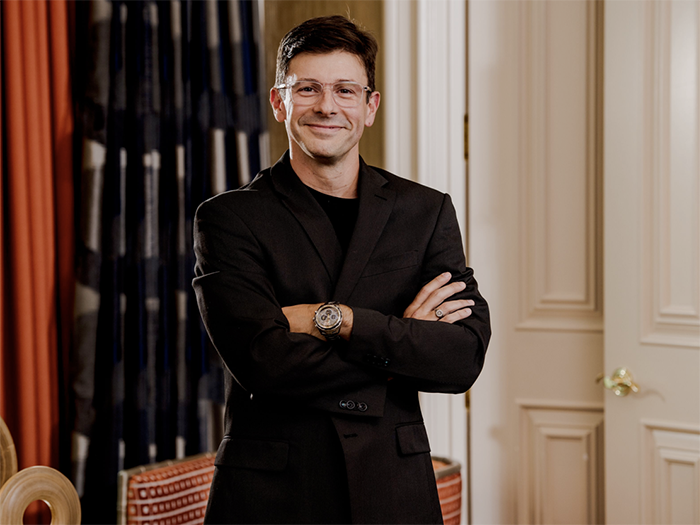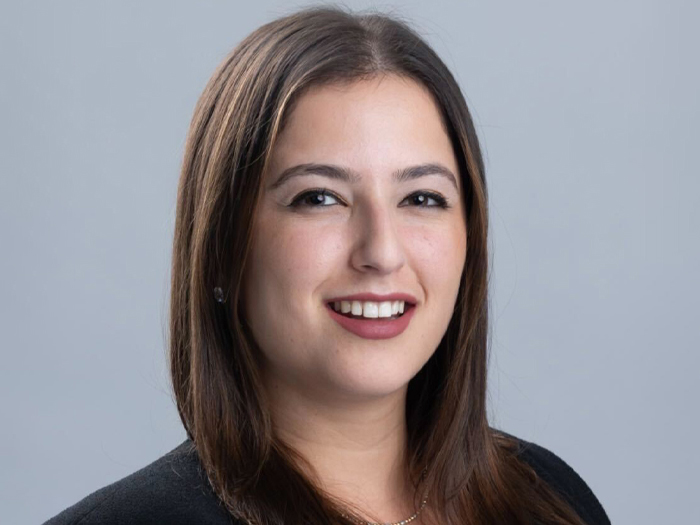Adjusters
It’s Vital to Create Long Term Adjuster Relationships to Ensure Optimal Claim Outcomes

Diaries and documents. Estimates and files to review. Meetings with contractors to outline the scope of the work and repair costs. When does an adjuster have time to think about relationships?
The Hartford’s head of catastrophe claims operations and property large loss Randy McKee sympathizes. A claims adjuster’s first skills are organizational; the work doesn’t flow, it surges. So while relationships are critical, they must be built over time.
“You can craft it into the job once a person gets into the role of an adjuster, but to some extent, it has to be part of their DNA coming through the door,” McKee said. Bottom line, he added, “You have to be adaptable, because each customer is going to be different and you have to put them at ease.”
But that’s not all, said McKee: “We don’t know whatever else that customer is dealing with in their day-to-day life.
“They could have a sick family member, something wrong with their own health or their job. There’s a whole host of things that could be magnified by that situation.” That basic sensitivity to others sits at the heart of good relationship building, said McKee.
Don’t Keep Score
A good relationship is also measured by the advocacy a client senses on the part of the adjuster — something that should be looked for when hiring an adjuster in the first place.
“You can’t see it on a résumé,” said Greg Raab, president, the National Association of Public Insurance Adjusters, but an interview done correctly will tell you a lot.
“Tell me about a time that you helped a client through a difficult situation. How did you handle that?
“A lot of our CE credits derive from other ancillary skills and not just knowing the difference between Policy A and Policy B,” Raab added. “It’s not only proper documentation about clear messaging but also about putting yourself in their shoes. It’s empathy.”
Trust is key in personal and business relationships, said Raab. Not just your client’s trust, but trust in the rest of the industry, too, i.e. “company adjusters, attorneys etc. who, over time, know your work product and know you’re a person of your word.”
A caveat here from the world of international politics, though: Trust but verify. Kevin Grady, managing director of Beecher Carlson’s ZOOM Risk Analytics, laughed: “No question.
“We have enough analytics out there to verify that the philosophy and the strategies and approaches are working.”
Facts, Raab echoed Grady, speak for themselves.
“If they say ‘Hey, I’m going to buff up my estimate on that building structure,’ you owe it to your client to show that you’ve checked it and it has happened exactly as promised.”
Remember, too, that many relationships are long term; the independent insurance adjuster seated across from you may meet with you again over another claim.
“If you hit a home run off somebody, you’re their worst enemy and maybe they throw at you the next time up,” Raab said. “Summer league comes around, [and] you’re part of the same traveling team and you’re best friends.”
Baseball analogies are fine, but David Hausch, president, the National Association of Independent Insurance Adjusters, countered one idea raised by an adjuster about adjuster relationships: “Sometimes you feel you got the best of them; other times they get the best of you.”
That’s way too adversarial, said Hausch.
“A good adjuster never keeps score. The vast majority of cases are handled well, without litigation, and don’t end in negative or hard feelings.”
Know Yourself
Being a good adjuster is also about the relationship you have with yourself. ‘How open or curious am I ? What are my strengths and weaknesses? Any personal hot buttons I need to watch for?’ Some of this is situational.
McKee spent a week in Texas after Hurricane Harvey, watching people dump their personal belongings on the front lawn, knowing they had no flood insurance to cover their losses.
“You see that day after day; an adjuster has to be thoughtful about that and aware how that wears on you over time.”
Also, one adjuster’s strength may be numbers, taking spread sheets and turning them into dollars for a client. They may not be the best person, however, to explain it to the client, said Raab, for example employing language “at a doctoral level, when the client needs it at a high school level.”
You’re potentially going to turn off that client as a result “or take a cooperative relationship with an adjuster and turn it into an adversarial relationship, without knowing why.”
“If you hit a home run off somebody, you’re their worst enemy and maybe they throw at you the next time up. Summer league comes around, [and] you’re part of the same traveling team and you’re best friends.” — Greg Raab, president, the National Association of Public Insurance Adjusters
Claimants aren’t the only people adjusters deal with on a weekly basis, of course. Support staff, contractors and attorneys representing a claimant or an insurer will be alert to the adjuster’s relationship skills as well. They’ll see the strengths and weaknesses, too. Bottom line: Stress the former, avoid revealing the latter.
Added Hausch, self-awareness is a life lesson for everyone; not just adjusters.
“If you don’t like making snap decisions, don’t put yourself in a corner where you’re going to have to give a snap answer.”
McKee added, “You may be dealing with an attorney or public adjuster, and those individuals are going to test you in a negotiation. You can’t take it personally.” It’s not just about the adjuster. It’s about the situation, the process and the outcome, he said.
Dig Deep
Grady said a good relationship with a client extends beyond a firm handshake, stemming all the way to the nuances of both client and business.
“A good adjuster knows what the client’s philosophy is. I would think that’s more important than feeling good about somebody.”
Adjusters also understand the special sensitivities a client may have, such as areas of their business they want kept confidential and boundaries that should not be crossed.
“A client doesn’t necessarily want it known their loss or damages are as big as they are,” said Raab. “They have competition. They have trade secrets. They don’t want it out there in the public that they’re really struggling.”
Grady demurred a little on that point. He’s seen cases where the rule about full disclosure goes sideways. A client who suppresses reserves, for example, and “is more optimistic about a claim’s outcome than they should be just to make the balance sheet look better.” At the end of the day it never works out for them, Grady said. “Both sides have to be candid and open about the risk and the assessment of risk.”
Grady laments one other fact about adjusting as a key part of the industry: the high turnover. It takes time to train a new adjuster in the way to do business, but building new relationships all over again can take even longer. &











